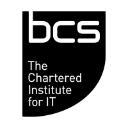BSc Cybersecurity aims to give students fundamental knowledge and skills needed to protect organisations, networks, IT systems and individuals against cyber threats, attacks, risks, and vulnerabilities. This course is fully accredited by the British Computing Society (BCS), and the course covers all the main topic areas required for an accredited Cybersecurity degree.
BSc Cybersecurity includes core security concepts and skills needed to monitor, detect, investigate, analyse, and respond to cybercrime, cyberespionage, insider threats, advanced persistent threats, regulatory requirements, and other cybersecurity issues facing organisations. The course emphasizes the practical application of the skills needed to maintain and ensure security operational readiness of secure networked systems. This course provides an understanding of how to manage information and the risks to that information, as well as provide practical approaches to implement necessary controls to reduce that risk.
Several staff at the University of Wolverhampton are engaged in cybersecurity research and work closely with the wider industry to ensure that the course will produce graduates who have the skills which industry needs. Employment in the area of cybersecurity is predicted to increase fivefold in the next two years, and there is already a severe shortage of trained graduates who are able to work in this area. Therefore, the likelihood of gaining well-paid employment at the end of your degree is extremely high.



/prod01/wlvacuk/media/departments/digital-content-and-communications/images-18-19/iStock-163641275.jpg)
/prod01/wlvacuk/media/departments/digital-content-and-communications/images-2024/250630-SciFest-1-group-photo-resized-800x450.png)
/prod01/wlvacuk/media/departments/digital-content-and-communications/images-18-19/210818-Iza-and-Mattia-Resized.jpg)
/prod01/wlvacuk/media/departments/digital-content-and-communications/images/Maria-Serria-(teaser-image).jpg)
/prod01/wlvacuk/media/departments/digital-content-and-communications/images-2024/241014-Cyber4ME-Project-Resized.jpg)
/prod01/wlvacuk/media/departments/digital-content-and-communications/images-18-19/210705-bric_LAND_ATTIC_v2_resized.jpg)
